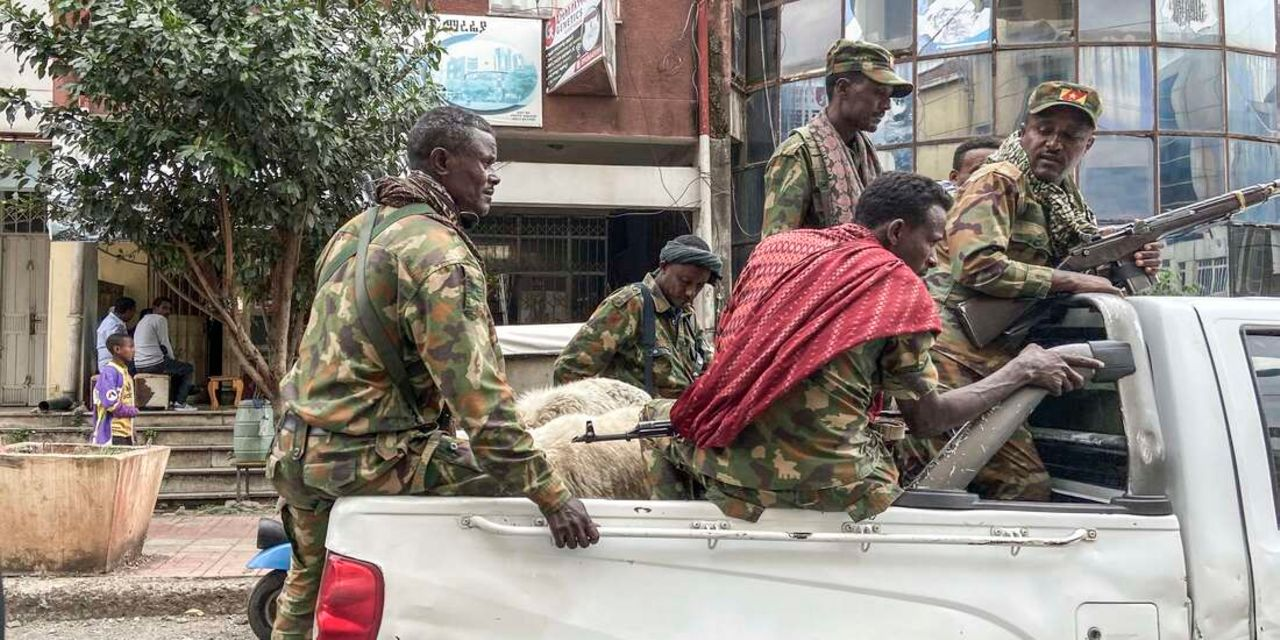A UN report alleges recruits of the Somali National Army ‘fought’ in the Tigray war alongside Eritrean troops, in what could signal an illegal participation in a foreign war by Mogadishu.
The report of the UN Human Rights Council, on the situation of human rights in Eritrea, said on Monday there were credible reports Somali soldiers were removed from their training camps and taken to the frontline in Tigray.
The revelations ad to previous complaints raised by some Somali families, who claimed their kin had been recruited in the Army and never been heard of again. The claims add to the concerns of the Eritrean army participation in Tigray, which rights groups accuse of atrocities.
Sudanese international law scholar Mohamed Abdelsalan Babiker, the UN Special Rapporteur who authored the report, did not travel to Eritrea or the frontline in Tigray. But said he received information indicating Somali soldiers were drafted to the battlefront.
“In addition to reports of the involvement of Eritrean troops in the Tigray conflict, the Special Rapporteur also received information and reports that Somali soldiers were moved from military training camps in Eritrea to the front line in Tigray, where they accompanied Eritrean troops as they crossed the Ethiopian border,” the report said.
Mogadishu’s position
Officially, the Federal Government of Somalia denies participating in Tigray conflict, where Ethiopian National Defence Forces have battled the Tigray People’s Liberation Front since November last year, when TPLF allegedly attacked a northern command of the ENDF.
Mogadishu is also on the record, viewing the Tigray conflict as an internal political matter. But it has never explained to families where their sons went to.
A Somali Federal Parliament committee had initially demanded answers on the arrangement between Eritrea and Somalia to train Mogadishu’s army. In spite of the denials, the report could now confirm Tigray as a regional conflict, rather than an internal political issue.
Last week, Ethiopian government indicated that Eritrean troops would be withdrawing from Tigray, more than two months after pressure mounted on Addis to have foreign troops leave.
“The process of withdrawing Eritrean troops from Ethiopia has begun,” Ethiopian Defence Minister, Kenea Yadetta, said at a virtual forum organised by the Ministry of Foreign Affairs on Friday. It was unclear if the Somali troops, who had been in training in Asmara when the war began, had already left Tigray. Under Somali law, participation of the military in a foreign war must be authorised by the Federal Parliament. Nonetheless, it could also raise questions on whether Somalia, currently rebuilding its army and under an UN Security Council arms embargo, should be taking part in foreign wars.
The Rapporteur says the conflict in Tigray has deepened ethnic tensions and created “an immense humanitarian crisis” where nine in every ten people is facing starvation. At least 4.5 million people – most of Tigray’s population – in urgent need of food and other assistance.
Famine likely
Antonio Guterres, the UN secretary-general said on Tuesday Tigray was now on the “brink of famine”.
“The situation will only keep getting worse unless need funding is increased and humanitarian access is improved. The actions we take now may mean the difference between life and death for many people,” he said on Tuesday on Twitter.
The UN has called for adequate independent investigations into reports of atrocities committed by Eritrean and Ethiopian troops, including looting, killing, maiming and raping; between November2020 and February this year.
The report was meant to be an observation on Eritrea’s human rights situation. But the author says he received no cooperation from Asmara and that officials declined to give him audience. He, instead authored it based on “observations” and information gathered from “a variety of sources” such as such as diplomats, human rights defenders, civil society representatives and academics.
“The Special Rapporteur considers that a visit to Eritrea would be the preferred method for carrying out a meticulous assessment of and gathering first-hand information on the situation of human rights in the country.
“However, given the lack of cooperation of the Government with the Special Rapporteur, who was denied access to the country, he collated the necessary information through alternative means.”
‘Malicious agenda’
In Eritrea, sources told him of incommunicado detention, arbitrary arrest and detention, inhumane prison conditions, indefinite military service, lack of freedom of expression, opinion, association, religious belief and movement, lack of the rule of law and the serious human rights violations in the Tigray region of Ethiopia committed by Eritrean troops.
“The Special Rapporteur underscores the centrality of human rights and the rule of law to stability in Eritrea,” he concluded.
Eritrean Government Spokesman Yemane GebreMeskel did not directly address the report, but did suggest claims of Somali recruits taking part in Tigray were out of a malicious agenda
“When broader agenda of certain powers is negative, they can invariably unleash pool of journalists from “prestigious” media outlets, who are at their beck and call, to embellish/recycle innuendos as “credible news”, he wrote on Twitter on Tuesday.
“Long-discredited “news of Somali troops in Tigray” case in point.”

